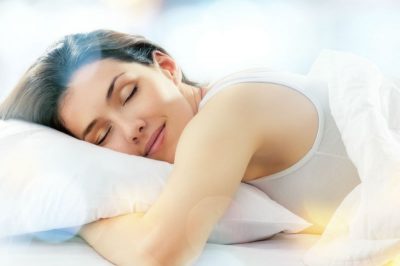
However, research has shown that failing to get enough sleep can have a detrimental effect on long-term health and wellbeing.
The boom in the use of technology is one of the major contributory factors impacting on sleep, with mobile devices, computers, television and more eating into our usual resting hours.
The devices emit blue light, which can disrupt your sleep. Your body is naturally programmed to wake up with light, so put them down at least an hour before bed and you will feel the benefit.
Read on as we assess the sleep epidemic and look at ways it can resolved.
Issues with sleep can start early
Studies have shown that pre-school age children who miss out on sleep can end up suffering cognitive issues during their life.
New research in the United States has suggested that even one night of poor sleep can increase the risk of Alzheimer’s, push anxiety to dangerous levels and add to feelings of loneliness and social isolation.
Many educational establishments have moved to address these issues a little further down the line, by considering whether to make school start times later to better match teenagers’ sleep cycles.
Some experts think this is a merely a ‘sticking plaster’ and that the issue of sleep deprivation is a health crisis that deserves far more attention.
“It used to be popular for people to say, ‘I’ll sleep when I’m dead.’” Daniel Buysse, a professor of sleep medicine at the University of Pittsburgh, told the Washington Post. “The ironic thing is, not sleeping enough may get you there sooner.”
The power of seven
Getting quality sleep is undoubtedly one of the most important factors to consider if you value your health and wellbeing.
Health expert, Terence Carfrae, created the Seven Pillars Model of Health and Wellness to guide people through the confusion of a modern life and its challenges to a lived experience of aliveness, deep health, and vitality.
It offers a clearer picture of what health really is – a body that is alive and energised and a mind and soul that are awake, connected and fulfilled.
The elements of the model include the mind and emotions, breathing, hydration, food and eating, movement, sleep and waking cycles, and connection.
Carfrae’s belief is that those seven aspects of holistic health collectively impact on people’s ability to enjoy life to its fullest.
How to get better sleep
Getting a sufficient amount of rest gives people the perfect platform to undertake whatever tasks or activities await them the following day.
Establishing a schedule for sleep is a great place to start, helping to focus the mind that resting is extremely important to health and wellbeing.
Keeping fit, relaxing before going to bed and banning electronic devices from the bedroom are all great ways to improve your sleep.
Neuroscientist Matthew Walker, an expert in sleep at UC Berkeley and author of the best-selling book Why We Sleep, is an advocate of meditating to calm your nervous system and is firmly against the use of sleeping pills.
He believes that making your bedroom an enjoyable place to be can play its part in helping you get a good night’s sleep. Search online for the best mattresses to ensure you are comfortable and use relaxing colour shades in your bedroom to make it a welcoming haven of tranquility.
What if I still can’t sleep?
There are numerous products available in the US that designed to help people have a restful night’s sleep.
The ChiliPad Cube is a great example of this. The product is mattress pad that regulates the surface temperature of your mattress by actively circulating water through a network of micro tubes.
It is available as a dual system that allows two sides of a larger bed to have different sleep temperatures, helping couples to enjoy optimal resting conditions on their side of the bed.
The Kryo Sleep Performance System, Ebb Insomnia Therapy, Sleepion and the Nightly app are amongst a plethora of other products designed to enhance your sleep.
If all else fails, visit your general practitioner who will be able to advise the best course of action to take to resolve your sleeping difficulties.
How does a lack of sleep affect people?
Experts say that a lack of sleep can have a negative impact on every aspect of a person’s physiology.
Getting enough sleep is not an optional lifestyle luxury, but more a biological necessity that is effectively your life support system.
Sleep deprivation makes people more forgetful, affects learning capacity, increases the risk of heart attacks and attacks your immune system.
Lack of sleep makes your body hurt more, distorts your genes, disrupts the creation of sex hormones and generally increases your risk of death generally.
Sleep problems such as insomnia have also been linked closely to other serious medical complaints such as depression.
And what is the impact on wider society?
Research has found that inadequate sleep causes economic losses of more than $400 billion in the United States every year.
That figure is over double the $138bn lost by Japan to sleeplessness among workers, highlighting the seriousness of the problem in the US.
The number of people who sleep less than the recommended hours in the developed world is on the rise, with nearly 30 percent of workers complaining of a lack of sleep on a daily basis.
Inadequate sleep reduces the safety and productivity of workers, as highlighted by tiredness being found to have played a part in the Challenger Space Shuttle accident.
Studies have shown that well-rested employees are more efficient, tend to be healthier and feel more content, further highlighting the importance of sleep.










